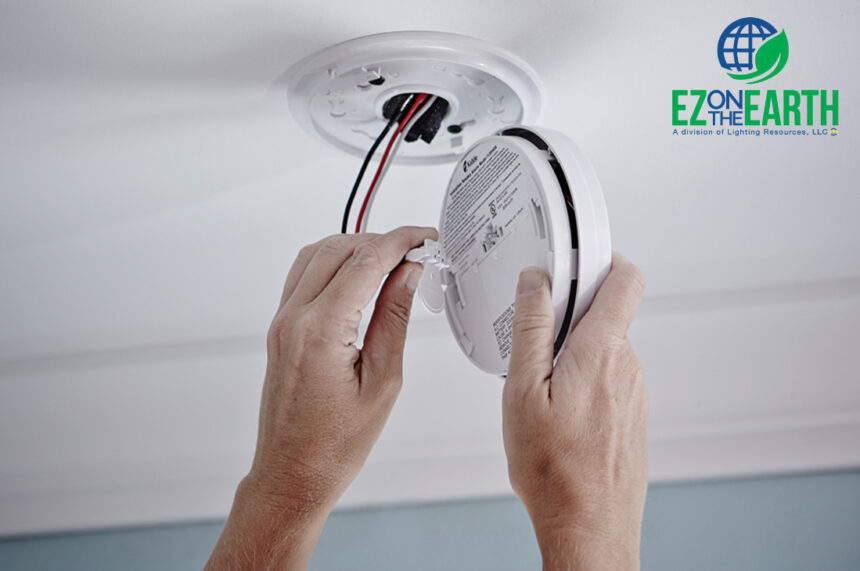Smoke detectors play a crucial role in fire safety, providing early warning to occupants and enabling timely evacuation during emergencies. However, like all electronic devices, smoke detectors have a finite lifespan, and proper disposal is essential to ensure safety and minimize environmental impact. This article explores the importance of smoke detector disposal, the types of smoke detectors, disposal methods, and best practices for responsible management.
The Importance of Proper Smoke Detector Disposal
As vital as smoke detectors are for safety, improper disposal can lead to several issues:
- Hazardous Materials: Some smoke detectors, particularly older models, may contain hazardous materials, including radioactive isotopes (in ionization detectors) and heavy metals. Disposing of these devices in regular trash can lead to environmental contamination.
- Environmental Impact: Smoke detectors, like other electronic waste (e-waste), contribute to landfill waste if not disposed of properly. As e-waste can release harmful substances into the environment, responsible disposal is essential for protecting ecosystems and public health.
- Regulatory Compliance: Various regulations govern the disposal of electronic devices, including smoke detectors. Improper disposal may result in legal consequences for businesses and individuals.
- Safety Hazards: If smoke detectors are improperly discarded, they can pose safety risks. For example, damaged detectors may leak hazardous materials or catch fire, creating dangerous situations.
Types of Smoke Detectors
Understanding the types of smoke detectors is essential for determining the appropriate disposal method:
- Ionization Smoke Detectors:
- Description: These detectors contain a small amount of radioactive material (americium-241) that ionizes air molecules. When smoke enters the chamber, it disrupts the ionization process, triggering the alarm.
- Disposal Consideration: Ionization detectors are classified as hazardous waste due to the radioactive material they contain.
- Photoelectric Smoke Detectors:
- Description: These detectors use a light source and a sensor to detect smoke. When smoke enters the chamber, it scatters the light, triggering the alarm.
- Disposal Consideration: Photoelectric detectors are generally safer to dispose of than ionization detectors, but responsible disposal is still necessary.
- Combination Smoke Detectors:
- Description: These devices combine both ionization and photoelectric technology to provide enhanced protection against various types of fires.
- Disposal Consideration: Combination detectors may contain hazardous materials and should be disposed of carefully.
Proper Disposal Methods
To ensure the safe and responsible disposal of smoke detectors, follow these methods:
- Check Local Regulations: Before disposing of a smoke detector, check local regulations regarding e-waste disposal. Many municipalities have specific guidelines for disposing of electronic devices, including smoke detectors.
- Return to Manufacturer: Many manufacturers offer recycling programs for their smoke detectors. Check the manufacturer’s website for information on how to return old detectors for proper disposal. Some may provide pre-paid shipping labels or designated drop-off locations.
- Recycling Centers: Some local recycling centers accept smoke detectors as part of their electronic waste programs. Contact your local recycling center to inquire about their policies regarding smoke detector disposal.
- Household Hazardous Waste (HHW) Facilities: Many communities have HHW collection programs or events that allow residents to safely dispose of hazardous materials, including ionization smoke detectors. Check with local waste management authorities for information on upcoming events or permanent collection facilities.
- Follow Manufacturer Instructions: If disposing of a smoke detector through traditional means, refer to the manufacturer’s disposal instructions. Some manufacturers provide specific guidelines for handling and disposing of their products.
- Battery Disposal: If the smoke detector uses batteries, ensure proper disposal of these batteries as well. Many batteries contain hazardous materials and should be disposed of at designated battery recycling facilities.
Best Practices for Smoke Detector Management
To promote safety and environmental responsibility, consider the following best practices:
- Regular Testing and Maintenance: Regularly test your smoke detectors to ensure they are functioning correctly. Replace batteries as needed and replace the entire unit every 10 years or according to manufacturer recommendations.
- Keep Records: Maintain records of smoke detector purchases, installation dates, and replacement schedules. This practice helps ensure timely replacement and proper disposal when the time comes.
- Educate Others: Educate family members, employees, or tenants about the importance of smoke detector maintenance and disposal. Raising awareness can lead to safer practices and environmental responsibility.
- Consider Alternatives: If you’re replacing older ionization smoke detectors, consider switching to photoelectric detectors. They are generally safer to dispose of and provide effective fire detection.
Conclusion: A Commitment to Safety and Responsibility
Proper smoke detector disposal is crucial for ensuring safety, protecting the environment, and complying with regulations. By understanding the types of smoke detectors, following safe disposal methods, and adopting best practices for smoke detector management, individuals and businesses can contribute to a safer and more sustainable world.
As we strive for a safer environment, responsible disposal of electronic devices like smoke detectors is a small yet significant step. By taking the time to dispose of smoke detectors properly, we can safeguard public health, protect ecosystems, and promote a culture of environmental stewardship.






